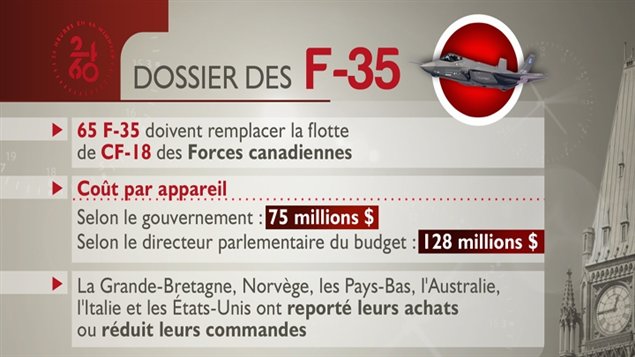A federal report on military procurement to be released Tuesday will recommend bidders be required to explicitly outline how they will spur innovation and long-term economic growth in Canada, a source familiar with the file told the National Post.
The source says the report largely hangs on the idea that high-priced bids should include a “value proposition” component — a commitment, laid out in detail, of how the firm will invest in future skills development, technological advancement and Canadian competitiveness on the global stage.
“The notion that a smart buyer thinks in advance about all of the potential implications of their purchase prior to actually making their purchase is sound public policy and long overdue in government,” the source said.
The report’s author, Tom Jenkins, was appointed special advisor to Public Works Minister Rona Ambrose back in September and was asked to find ways to better ensure the competitiveness of Canada’s defence industry. Ms. Ambrose’s department manages $18-billion in government contracts annually — $7-billion for defence — and is slated to oversee more than $240-billion in military procurements over the next decade.
Related
Michael Den Tandt: Harper government considers new procurement agency to manage military purchases
Matt Gurney: The sad story of Canada’s unmanageable military
Michael Den Tandt: Flaherty’s next budget will be smaller and, the Tories hope, less controversial than last year’s
The report, which Mr. Jenkins will present in Ottawa on Tuesday morning, comes amid speculation of a total overhaul of the way Canada doles out contracts and just three months after the Harper government cancelled its controversial F-35 purchase. Should value proposition be woven into military procurement with great success, it could be rolled out across all government purchases.
The source says the approach is widely accepted by Canadian industry and would, in all likelihood, be adopted as policy and applied to contracts pegged at a minimum value, perhaps somewhere in the order of $500-million or more. This could, however, raise eyebrows among foreign bidders who might consider themselves at a disadvantage and view this as an added challenge to entering the Canadian market.
Such a move would ramp up existing procurement requirements bent on bolstering the national economy, forcing both federal bureaucrats and defence contractors to think pro-actively — before a contract is signed, when Ottawa’s leverage is strongest — about how to ensure industry longevity.
The requirement was first tested three years ago as part of the National Shipbuilding Procurement Strategy, which led to $33-billion in contracts and the prospect of 30-years-worth of job creation. Bids were evaluated on multiple grounds totalling a maximum of 100 points, including 10 points for the new “value proposition” component.
Since the 2011 shipbuilding contracts were awarded to two Canadian shipyards, the department has rolled out the value proposition requirement on just two other procurements, one military and one non-military, the source said.
Mr. Jenkins’ review is expected to echo the November, 2012, report spearheaded by former Cabinet minister David Emerson.
That report, Beyond the Horizon: Canada’s Interests and Future in Aerospace, said Ottawa should demand more than its long-standing requirement that defence contractors buy Canadian goods and services equal to the value of the contract — that the government should, in fact, also negotiate “clearer, more specific” terms on investing in the survival of Canadian industry.
Although he did not use the words “value proposition,” Mr. Emerson said the assessment of “post-sale activities” should count for at least 10% of the scoring system — just as it did in the shipbuilding bid. The report said Public Works should consider the extent to which a bidder’s plan strengthens Canadian innovation and improves the sector’s ability to compete globally.
Mr. Jenkins’ report comes more than a year after he helped review federal support for research and development. In that November, 2011, report, he made the case for using procurement to stimulate innovation, echoing a promise made by the Harper government in its budget earlier that year.
Investissements dans l'appareil militaire canadien
Procurement bids like F-35 should include a ‘value proposition’ from now on, report suggests


























Laissez un commentaire Votre adresse courriel ne sera pas publiée.
Veuillez vous connecter afin de laisser un commentaire.
Aucun commentaire trouvé